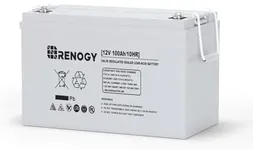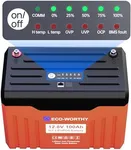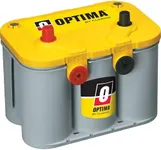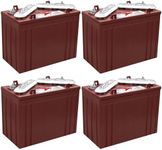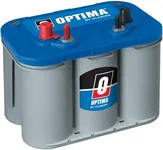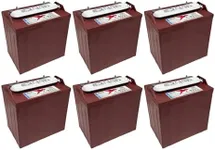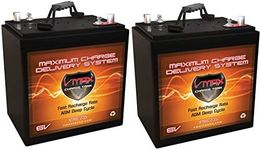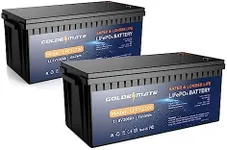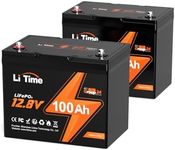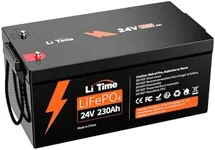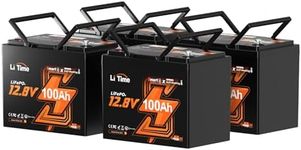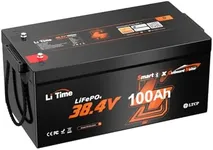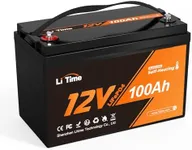Buying Guide for the Best Rv House Batteries
Choosing the right RV house battery is crucial for ensuring that your recreational vehicle has a reliable power source for all your electrical needs while on the road. The right battery will provide you with the necessary power to run appliances, lights, and other electronics without frequent recharging. To make an informed decision, you need to understand the key specifications and how they relate to your specific needs and usage patterns.Battery TypeThere are several types of RV house batteries, including lead-acid, AGM (Absorbent Glass Mat), and lithium-ion. Lead-acid batteries are the most common and affordable but require regular maintenance. AGM batteries are maintenance-free and have a longer lifespan but are more expensive. Lithium-ion batteries are the most advanced, offering the longest lifespan and highest efficiency, but they come at a premium price. Your choice should depend on your budget, maintenance preference, and how often you use your RV.
Capacity (Amp-Hours)Capacity, measured in amp-hours (Ah), indicates how much energy the battery can store. A higher capacity means the battery can power your RV for a longer period before needing a recharge. For occasional weekend trips, a battery with a capacity of 100-200 Ah might suffice. For extended trips or full-time RV living, you might need a battery with 300 Ah or more. Consider your power consumption habits and the duration of your trips when choosing the capacity.
VoltageMost RV house batteries are either 12-volt or 6-volt. 12-volt batteries are simpler to install and are often used in smaller RVs. 6-volt batteries, when used in pairs to create a 12-volt system, can offer better performance and longevity. If you have a larger RV with higher power demands, 6-volt batteries might be a better choice. For smaller RVs or simpler setups, a 12-volt battery is usually sufficient.
Cycle LifeCycle life refers to the number of complete charge and discharge cycles a battery can undergo before its capacity significantly diminishes. A higher cycle life means the battery will last longer. Lead-acid batteries typically have a cycle life of 300-500 cycles, AGM batteries can last 500-1000 cycles, and lithium-ion batteries can exceed 2000 cycles. If you use your RV frequently or for long periods, investing in a battery with a higher cycle life can be more cost-effective in the long run.
Weight and SizeThe weight and size of the battery are important considerations, especially if you have limited space in your RV or need to keep the overall weight down. Lead-acid batteries are generally heavier and bulkier, while lithium-ion batteries are lighter and more compact. Ensure that the battery you choose fits in the designated battery compartment of your RV and does not add excessive weight, which could affect your vehicle's performance and fuel efficiency.
Maintenance RequirementsDifferent types of batteries have varying maintenance needs. Lead-acid batteries require regular checking and topping off of water levels, while AGM and lithium-ion batteries are maintenance-free. If you prefer a low-maintenance option, AGM or lithium-ion batteries are better choices. However, if you don't mind performing regular maintenance and want to save on initial costs, lead-acid batteries can be a suitable option.
Temperature ToleranceTemperature tolerance is the battery's ability to perform well in different temperature conditions. Lead-acid and AGM batteries can struggle in extreme cold or heat, while lithium-ion batteries generally have a wider operating temperature range. If you plan to use your RV in varying climates, a battery with good temperature tolerance, like a lithium-ion battery, will ensure reliable performance regardless of the weather.
